Blog
Lorem ipsum dolor sit amet, consectetur adipiscing elit. Curabitur varius orci vulputate mi faucibus, eget mollis velit interdum. Nullam tincidunt rhoncus turpis, vel bibendum magna vehicula ut. Nulla luctus rutrum metus sed pharetra. Morbi in odio libero. Quisque hendrerit ligula sit amet malesuada congue. Sed facilisis suscipit orci, ut rhoncus risus egestas vitae. Nunc hendrerit nunc ullamcorper ipsum placerat tristique. Nunc semper porta magna eget dapibus. Ut ut facilisis augue, eu eleifend arcu. Donec vitae dui nunc. Sed quam nisl, cursus euismod nisi in, ullamcorper auctor magna. Maecenas eget arcu non metus aliquam laoreet.
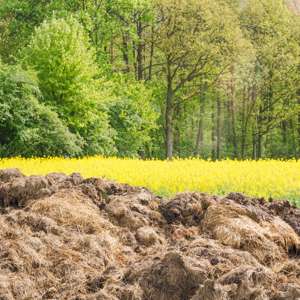
Towing from the pasture yes or no?
The question of whether dragging a meadow is wise is regularly asked by our customers. In this article we share a practical example and insights to help you make the right decision. We discuss the effects of dragging on worm infestations and provide advice on spreading horse manure on the land.
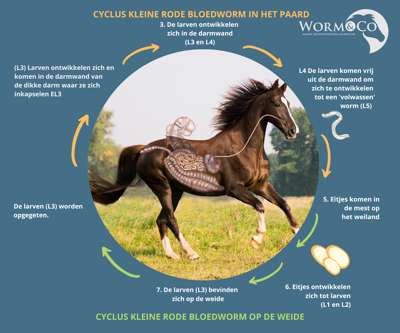
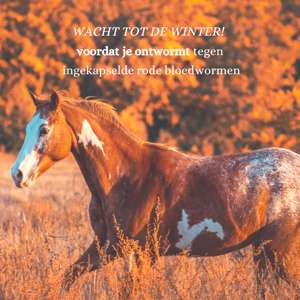
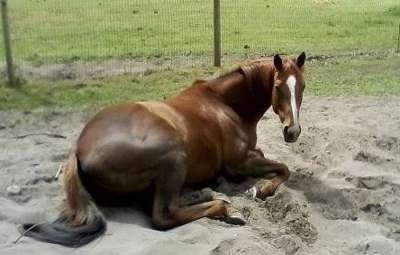
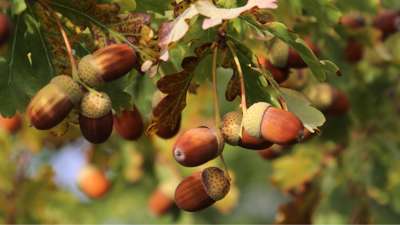

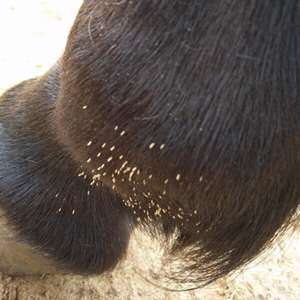
Can hornet eggs be found through manure research?
We are regularly asked whether hornet eggs can be found through manure research. In this blog we will tell you more about the hornet.
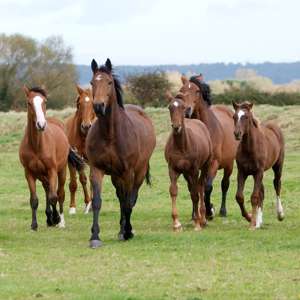
Warm winters, what are the consequences?
Due to warm winters and the absence of prolonged frost or cold, we see a higher infection pressure in winter. In recent years, more and more horses have been on the pasture 24/7. This also means that if the manure is not removed, the pastures will remain infectious for longer.
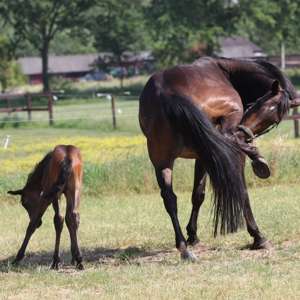

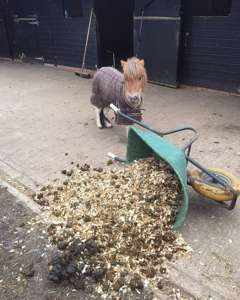
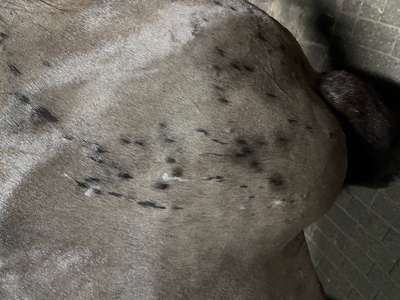
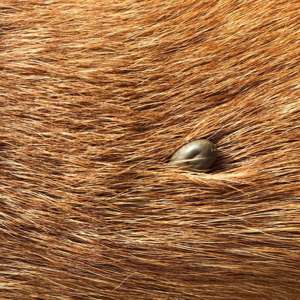
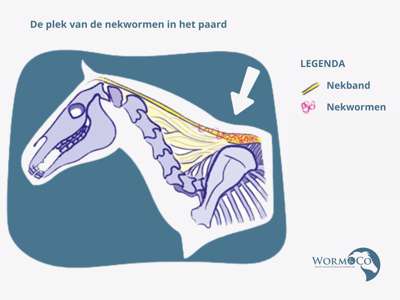
Introducing: neck worms
This parasite occasionally occurs in horses, where the adult worm lives in the neck tendon and can live up to 10 years. The adult worms are long and thin (between 6-30 cm) and live in the tendon of the neck. Horses become infected when they are bitten by infected mosquitoes (Culicoides also called midges).
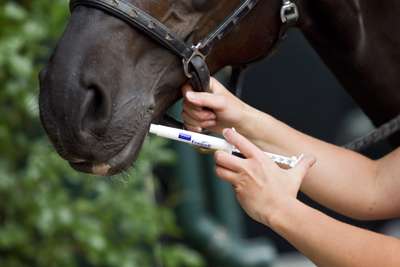
Deal with doubt? Do you ever suffer from it?
We sometimes experience that a horse owner does not want to treat, despite the advice that it should be treated. The reasons for this are varied, including fear of resistance or because it is thought that it will not be too bad.
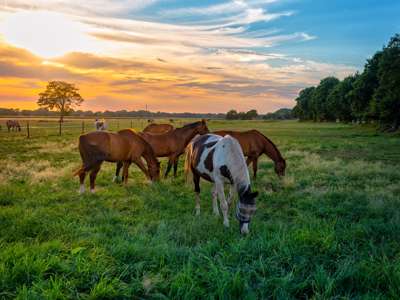
Worm resistance alarm!
How bad if you can no longer treat your horse?

HELTIE horse guest blog: Whether or not to deworm preventively in the winter?
HELTIE horse guest blog: Whether or not to deworm preventively in the winter?
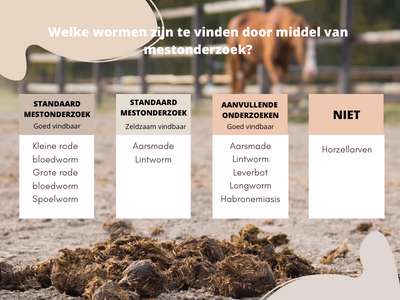
Which worms can be found through manure research?
Not all worms can be found through manure research. In this blog we describe which gastrointestinal worms can or cannot be found or for which gastrointestinal worms additional examinations are required.

Roundworm vs Pinworm
Pinworm is often confused with roundworm, they are very similar in shape but differ greatly in size. Do you want to know what the differences are? Then read this blog.
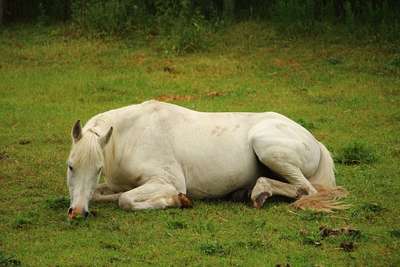
Complaints due to moxidectin treatment
Every year we see horses that react violently to the active substance moxidectin. This may be because the active substance is stored in the fat cells.
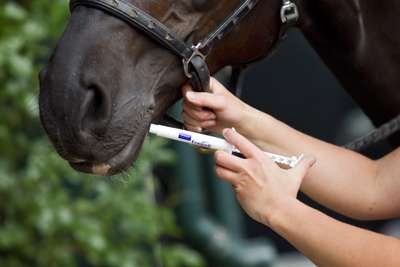
Why or why not preventive deworming?
It is important to make a proper assessment of whether your horse needs preventive treatment. This depends on various factors. Our team is happy to explain to you why preventive deworming is recommended, but also what the alternatives are.
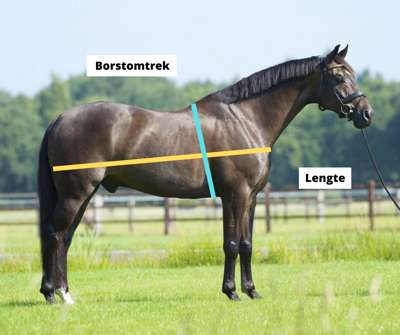
Measuring your horse is knowing!
Determining the weight of your horse can be very difficult, so we are happy to help you.
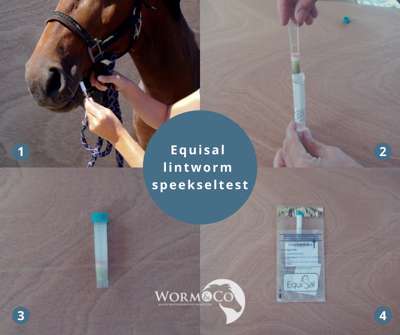
EquiSal Tapeworm tests a good alternative!
The EquiSal Tapeworm test is an innovative test on saliva that shows whether your horse has a harmful tapeworm infection. The test is user-friendly. The horse owner can collect the saliva himself with the supplied swab, which changes color once sufficient saliva has been collected.
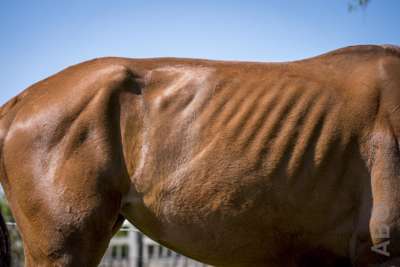
Stomach ulcer in horses what can you do?
Gastric ulcer in horses
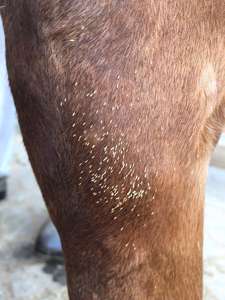
Hornet eggs? Reason to panic?
We are currently receiving many questions from horse owners about when we recommend treating against hornet larvae and whether treatment is always necessary. In this article we would like to take you through the do's and don'ts of hornet larvae.

Why manure research?
When manure testing? How do you get good control? Team Worm&Co is happy to answer your questions.
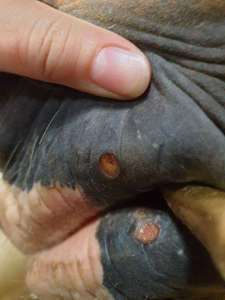
Introducing: Habronemiasis
Habronemiasis is an infection with Habronema worms. These are worms that live in the stomach of horses. Our team provides information about the life cycle, how Habronemiasis occurs, how you can prevent Habronemiasis and what treatment is required.
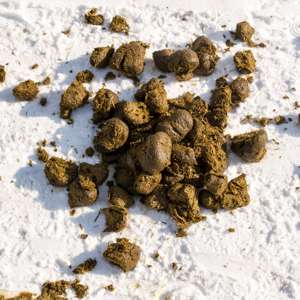
It is already time for the first manure study of 2019!
When manure research? How do you get a good check? Team Worm & Co will be happy to answer your questions. Note: all our customers always receive a reminder in the mail when it is time for manure research again!
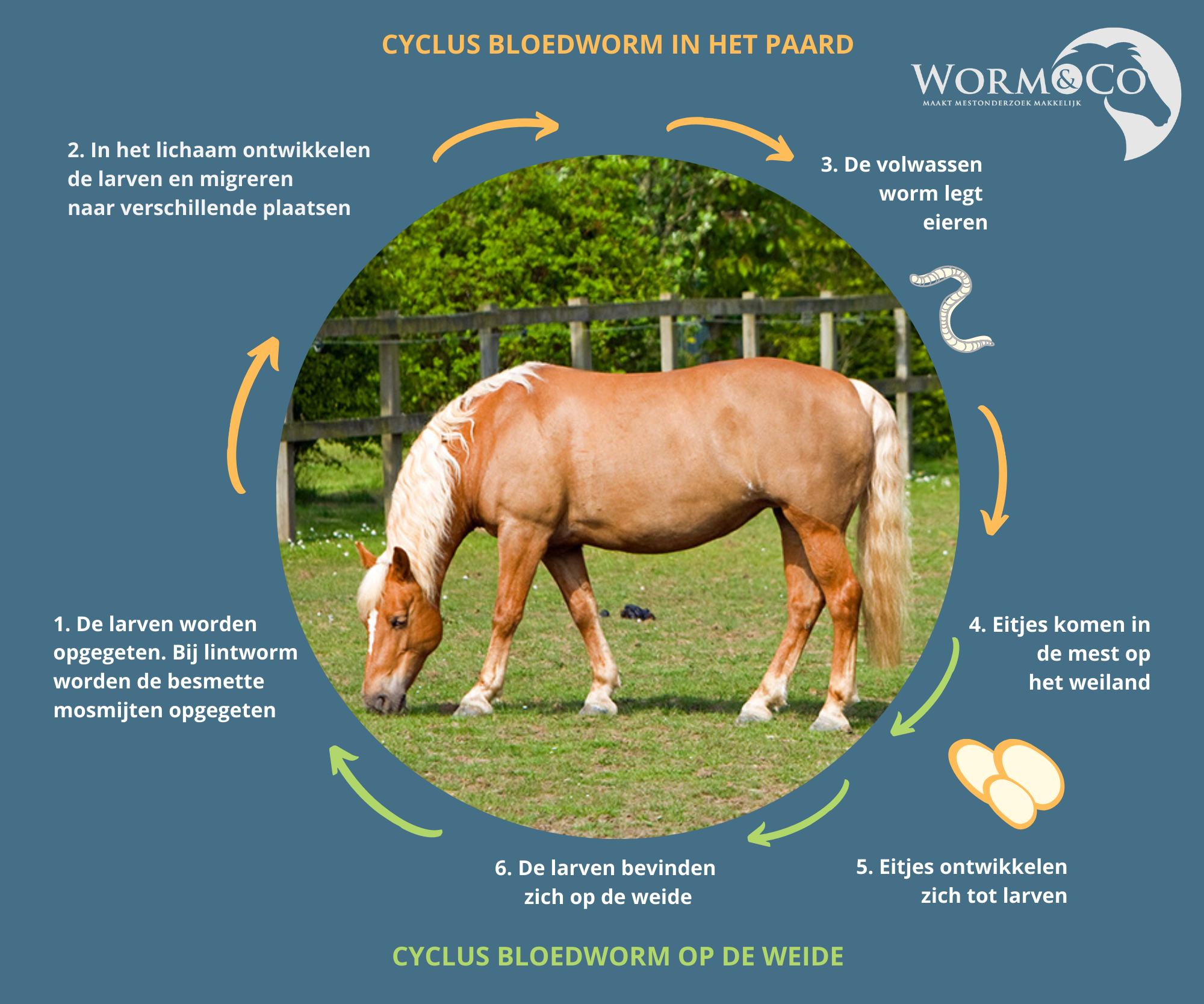
Wanted horses with recurring worm infection
For a study, Equibiome is looking for horses that often suffer from recurring gastrointestinal worms.
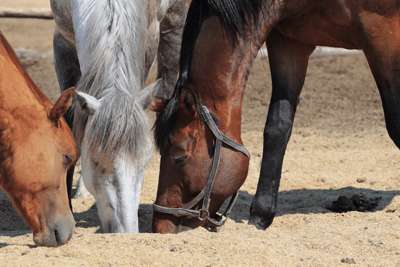
Sand colic? Prevention is better than cure
Easily test yourself whether your horse is carrying too much sand.

Should mare and foal be dewormed preventively or not?
What a wonderful time is coming again, all those cheerful foals in the meadow, that makes everyone happy, doesn't it?
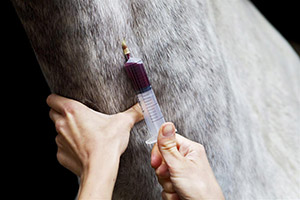
Red bloodworm detectable through blood tests?
Perhaps you have experienced it yourself. Your horse was not completely fit and the vet suggests taking a blood test.



